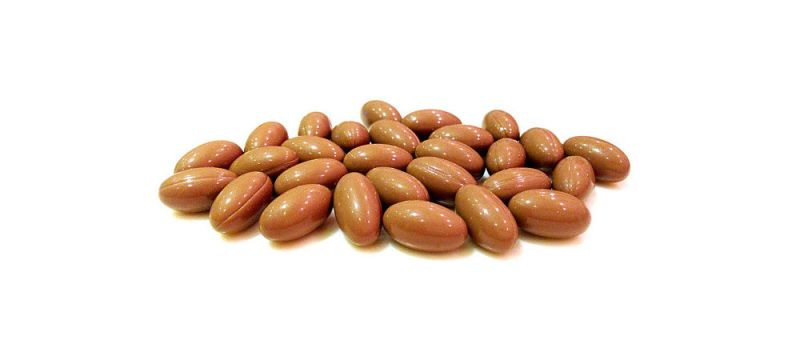Formed from the interactions of oxygen and other molecules, free radicals are atoms with an odd number of electrons that are highly reactive and can set off harmful causal chains in important cellular components of the body, such as DNA. Enter the almighty power of antioxidants, which can safely eliminate these potentially deleterious domino effects brought on by free radicals before they do their damage.
Defending your body against free radicals means ingesting more antioxidants, which in turn means ingesting the right foods. Antioxidant-dense food options are abundant here on beautiful planet Earth, and these are just a few to consider incorporating into your diet if you’re looking to live smarter and healthier.
Red, Blue and Purple Grapes

Providing your body the essential nutrients it needs to function optimally doesn’t always have to require spending extra time in the kitchen prepping full-course meals. For all the snackers out there, grapes are your next tasty, nutrient-packed, go-to fix for antioxidants. They’re loaded with phytochemicals such as phenolic acids, stilbenes, anthocyanins and proanthocyanidins, all of which are potent antioxidants that help prevent certain kinds of cancer and heart disease while also lowering your body’s cholesterol. Anthocyanins and proanthocyanidins are especially beneficial for developing a stronger immune system.
Greens

The nutritional benefits of deep, dark green veggies cannot be overstated. Vegetables such as kale, broccoli, collard greens and spinach are among the antioxidant-rich foods you can serve your body, so your body can better serve you in return. Spinach and kale contain a surplus of vitamins A, C, E and K, while broccoli, bok choy and mustard serve as excellent sources of B vitamins, including folate. Folate helps promote a healthy heart, prevents the likelihood of specific birth defects and is vital for duplicating and repairing DNA.
Greens also have minimal carbohydrates, sodium and cholesterol. They are high in fiber, iron, magnesium, potassium and calcium, so there’s no shortage of advantages to weaving in some greens with all your meals.
Sweet Potatoes

Sweet potatoes can be used in an assortment of dishes, from sweet potato fries to sweet potato soup. , The sweet vegetables are full of antioxidants and, although both sweet and white potatoes both provide fiber, potassium and vitamins C and B6, sweet potatoes contain higher levels of these micro- and macronutrients.
Similarly to grapes, sweet potatoes boast phytochemicals such as anthocyanins, carotenoids and phenolic acids. What’s more, the already high traces of these antioxidants can increase even more depending on the type of sweet potato and how long the potato has been in storage.
Other orange and yellow vegetables are also rich in antioxidants, including carrots, butternut squash, yellow and orange bell peppers, pumpkins and corn. They all come stacked with carotenoids, which the body turns into vitamin A to ensure skin, bone and heart health, along with better vision and a stronger immune system.
Nuts

Nuts are abundant with antioxidants. Walnuts, in particular, are among the highest antioxidant-ridden tree nuts, sporting more than 20 millimoles of antioxidants per 100g, with pecans and chestnuts trailing close behind. But there’s no need to limit yourself to walnuts, pecans and chestnuts for your antioxidants because almonds, peanuts, pistachios, hazelnuts, Brazil nuts, cashews and macadamia nuts all provide healthy doses of antioxidants as well.
Nuts also provide the body with healthy polyunsaturated and monounsaturated fats rather than unhealthy saturated fats. A 2015 study conducted by investigators at Baylor College of Medicine, University of Houston and Texas Woman’s University detailed how peanuts and peanut butter can counteract obesity. Bottom line: go nuts if you want your antioxidants.
Tea

Though both coffee and tea have their fair share of nutritional benefits, but tea is especially big on the antioxidant game, especially in green teas and black teas. Proanthocyanidins and anthocyanins in teas fend off inflammation, while green tea specifically contains catechin epigallocatechin gallate (EGCG) — the most abundant, most potent antioxidant found in green tea for cancer prevention.
No Supplement for the Real Thing
Even though these high-antioxidant foods exist, many people still resort to nutritional supplements to get their recommended daily intake. And while it’s imperative to weave antioxidants into your diet as often as possible, there is most definitely a thing as too many antioxidants. At the end of the day, a highly concentrated dietary supplement of any kind will never be a substitute for the nutritional offerings of a balanced diet made up of whole foods.
